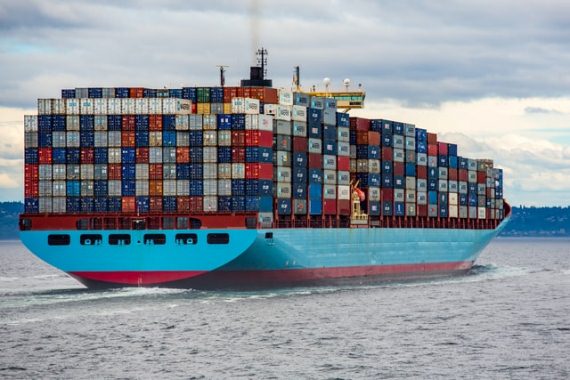-
Maersk puts its global container volume growth in 2021 at 7.8%, reflecting the ongoing growth in global GDP
-
Challenges will remain amid ongoing pressures and bottlenecks in the broader supply chain
-
Port congestion and inland transportation delays remain key issues, while freight rates are expected to remain elevated
-
Maersk said equipment and space will remain under pressure, with a tight supply of shipping space foreseen through the Chinese New Year, although this could ease during the month
Containerized cargo volumes will grow this year despite risks to global trade including geopolitical tensions, delivery delays, and the continuing pandemic, predicts container shipping liner group Maersk.
Maersk in its Asia-Pacific market update estimated its global container volume growth in 2021 to be at 7.8%, which reflects the ongoing growth in global GDP and indicates that volumes are now back to trend levels.
It noted that global manufacturing showed signs of firming in December, citing global Purchasing Managers’ Index (PMI) figures released in January. The carrier also said manufacturing sentiment remained upbeat in the fourth quarter of 2021 despite a raft of challenges including delivery delays and the continuing threat from COVID-19.
China’s manufacturing PMI nudged higher in December 2021 for the second straight month to hit 50.3, showing the economy was in expansion mode ahead of the Chinese New Year holiday in February 2022. The PMI also showed a GDP increase for China during the fourth quarter of 2021, up 4% from the previous year, while manufacturing in China also grew in tandem, up 4.3% from the previous year.
However, the carrier warned that challenges remain, noting that Deutsche Bank’s congestion index points to ongoing pressures and bottlenecks in the broader supply chain. Port congestion and inland transportation delays are among the key issues, while freight rates are expected to remain elevated.
Maersk in the January 31 market update said COVID-19 flare-ups continue to challenge Greater China supply chains.
Even though container loading and discharge operations at ports and terminals have remained normal despite cases in January 2022 in Ningbo, Tianjin, Shenzhen, Dalian and Guangzhou, district-level lockdowns and mass testing have led to warehouse closures and trucker shortages.
In Ningbo, transport and warehousing operations are operating normally after a cluster of cases in early January in the city’s Beilun district led to extensive trucker delays as drivers had to undergo testing and quarantine before being allowed into Beilun’s three container terminals.
In Shenzhen, there are gate entry restrictions at the city’s Shekou terminal as health officials carry out testing after cases in Shenzhen. In Beijing, several cases of the highly transmittable Omicron variant of COVID-19 are putting the city on alert ahead of the Beijing Winter Olympics due to start on February 4.
The pandemic is also impacting port operations in the wider Maersk global network, with Omicron particularly creating acute staff shortages at ports and terminals even though the facilities remain operational.
In the short term, Maersk said equipment and space will remain under pressure, with a tight supply of shipping space foreseen through the Chinese New Year (CNY), although this could ease during weeks 5, 6 and 7 (February 1-20).
“Equipment will be tight in specific locations and we urge shippers to consider using 20ft containers and non-operating reefers (NOR) in place of 40ft boxes,” it advised.
Maersk also anticipates a quick rebound after CNY on most trades, saying demand remains strong but capacity is tied up due to congestion delays at ports in North America and Europe.
“Unfortunately, this situation is likely to continue for some time particularly now that Omicron has cut workforce numbers in some locations by up to 25%,” it said. “Our schedule reliability continues to be the best in class, although it is still unacceptable for us. We will continue to seek ways to improve reliability and service levels.”
Sea-Intelligence recently again named Maersk as the most reliable Top-14 carrier in December 2021, with schedule reliability of 46.2%, although the global schedule reliability of ships overall dropped again last month, the lowest point reached in 11 years.
Photo by Ian Taylor on Unsplash





